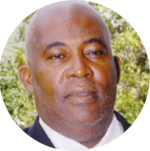
THE Philip J. Pierre led administration has a resilient determination to emancipate its people and to allow them their true freedom.
But what is emancipation? Emancipation means to be free from control, or the power of another, especially to be free from bondage.
Emancipation also means the state of being bound, usually by some external power or control. Also, a form of enslavement.
Indeed, in 1794, the slaves in St. Lucia began to show resilience by agitating for their freedom. However, in 1834 the British parliament proclaimed that all slaves should be freed or emancipated. Notwithstanding, the colonists who had enslaved the people were not happy with that proclamation and still kept the slaves, although under less rigorous condition.
Now, the slaves in St. Lucia, having known of that proclamation that should free them from bondage, became fiercely resilient pressed their resilience for complete freedom.
Indeed, in 1830 the population of St. Lucia was about 17,678 people of that number, 13,285 of the population were slaves. The remainder of 4,393 persons were Spanish, British and French colonizers. In fact, all persons considered as slaves were kept in bondage.
Indeed, on August 1, 1838 slavery was officially abolished in the British Empire, including St. Lucia. Approximately 13,285 individuals of African descent, were freed from slavery on the island of St. Lucia.
Now, on August 1 each year, St. Lucia observes Emancipation Day as a national holiday. Indeed, it celebrates the resilience and strength of those who fought for freedom.
Indeed, as we have seen in the situation of slavery, a proclamation is one thing and the thinking and practice is another. As Bob Marley puts it: “Emancipate yourself from mental slavery.”
Now, slavery is synonymous with poverty. And I need to indicate that the fight against poverty is an imperative. In order to do this, our St. Lucia people must change their cognition or way of thinking. They must release undesirable thoughts with new, pure and noble thinking. They should be ready to acquire new knowledge to truly emancipate or liberate themselves.
Indeed, this is where the government of St. Lucia is making the resilient determination that I referred to earlier in this article.
The government has introduced a programme to First Degree students. The government will provide support to individuals, ‘red or yellow’, who are facing obstacles in completing their first degree. The government offers up to $10,000 to cover accommodation, airfare, transport, visa processing and tuition fees. The government hopes, that by alleviating constraints, this programme should increase the chances of those students successfully completing their university courses.
This is excellent support! I am sure that many of you can remember that the St. Lucia Education System began with three secondary schools; the St. Mary’s College, the St. Joseph’s Convent and the Vieux Fort Secondary school in the south of the island.
I am very sure for the St. Mary’s College and the St. Joseph’s Convent parents or guardians had to meet the cost of the school fees to attend those schools. Now, it did not matter how bright a student was, if you wrote the then scholarship examination and passed for those top schools, unless your parents or guardians were able to meet the school fees you could not attend those institutions.
Indeed, as late as 1997, at age 45, I was granted a partial scholarship to read for the degree in Educational Administration and management. I successfully completed the programme two years later with honours, with the Cave Hill Campus, of the University of the West Indies.
Now although I received a partial scholarship, I only received 60% of my salary, since I was employed as a school Principal. At that time principals running a school must have a degree. Losing 40% of your salary with a family to maintain was nothing like “cheesecake’.
Now since I was administering the government literacy programme in Marchand, I was given a full scholarship to do a Post Grade Diploma in Adult Education, at the UWI, St. Augustine, Trinidad, which I also successfully completed in 1983.
I have told you all of that to show that it is no easy matter to free yourself from ‘mental slavery’. For many of us, we need government assistance to achieve that.
Now, we come to the “First Generation” Monroe College Scholarships. This programme has been championed by the Prime Minister himself. This initiative aims to have at least one university graduate per household. There are two important aspects to that thinking. Financially, that the graduate would be able to improve the economic situation of his/her family. Additionally, that graduate would be able to utilize his or her skills to improve the educational situation for the family, the immediate community and, indeed the nation.
We come now to the Educational Loan Financing Facility. The government has established a line of credit at the St. Lucia Development Bank (SLDB) to benefit students from disadvantage backgrounds who qualify to pursue a university course or programme. The government will guarantee the loan, eliminating the need for collateral. More than that, the repayment on the loan would commence several months after graduation.
As I write, I am getting goosebumps. I must admit that this is a Prime Minister and government that understand the social problems, and makes a vigorous, resilient attempt at “Putting People First’”












